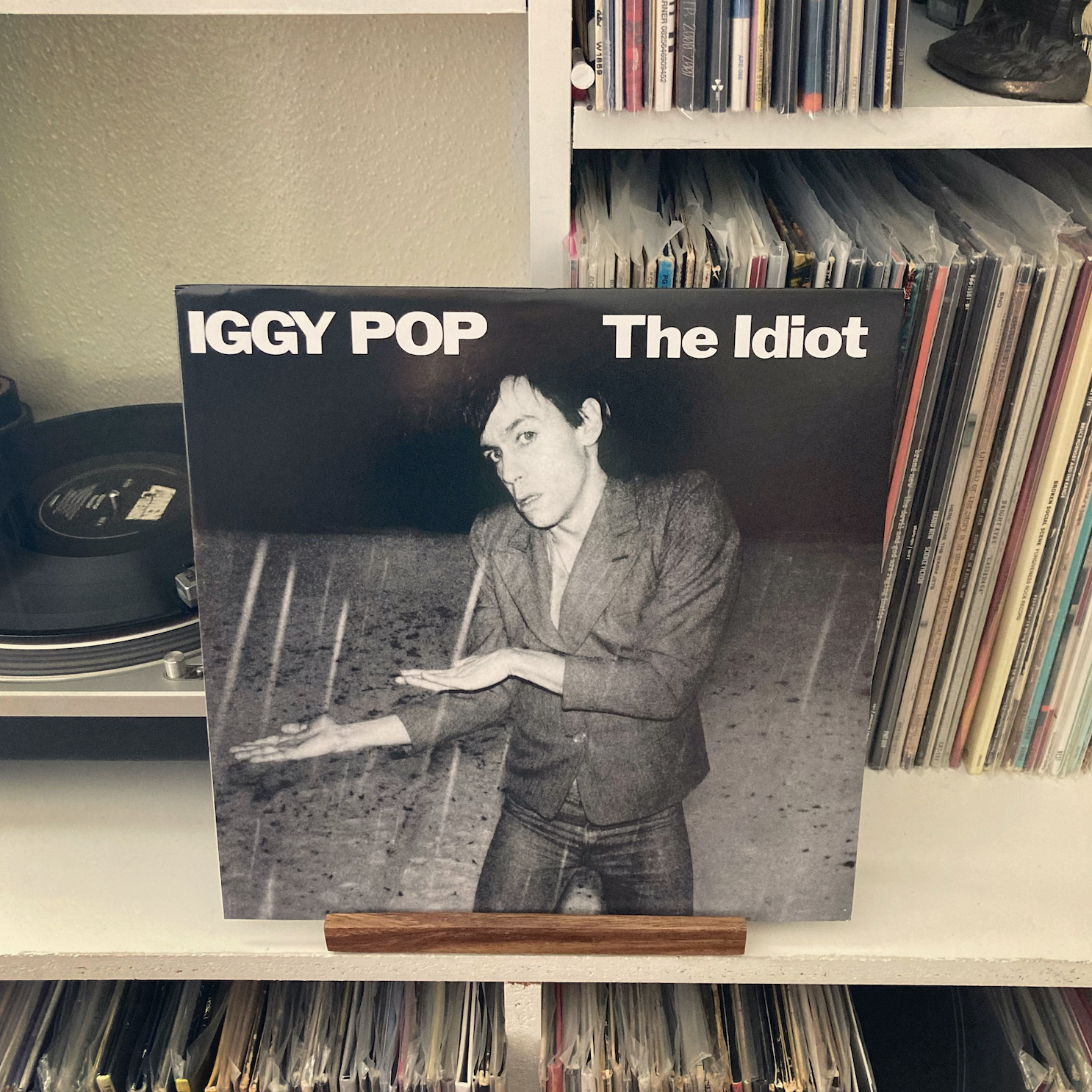
Iggy Pop lost himself for a while in the mid ’70s. His heroin addiction had proven too large a beast to manage, leading to the breakup of The Stooges in 1974. He tried his hand at a few musical ventures, auditioning to replace Jim Morrison in The Doors and to join KISS. Both were as unsuccessful as his stints in rehab.
In 1976, he reached out to his friend David Bowie, battling his own addictions, for help. The two moved in together into a Château near Paris and Bowie offered to produce an album for him. The resulting record, The Idiot, stripped away the proto-punk fury of Pop’s previous band in favor of Krautrock-influenced electronic textures—a sound that Iggy would describe as “James Brown mixed with Kraftwerk.”
In that way, The Idiot isn’t just a great record in Iggy’s catalog, but it’s also the spiritual prequel to Bowie’s Berlin Trilogy.
At times, the record is unsettlingly austere. Iggy feels subdued to the point of catatonic, far from the wailing, hollering banshee that fronted The Stooges. His voice remains low in his range for most of the album (barring a couple lines in “China Girl“). Gnarled electric guitars fight to get free from the chokehold of primitive effects while keyboards, synthesizers, and the occasional saxophone dance in the ether. The rhythm section lays the grooves with almost robotic affectation, all while Pop’s tremulous voice employs a sonorous baritone.
It’s an odd and alien album—even as influential as it’s been. Both its sonic and visual aesthetic was a huge influence on post-punk, industrial, and goth rock, cited by bands like Depeche Mode, Siouxsie and the Banshees, Radiohead, the Smashing Pumpkins, Nine Inch Nails, and especially Joy Division, whose lead singer Ian Curtis was discovered to have hanged himself with this record on his turntable. But as far as its influence spreads, nothing has ever sounded quite like this (barring, of course, the three Bowie albums that followed). “Nightclubbing” sounds like an extra-terrestrial trying to recreate ragtime without hearing it. “Dum Dum Boys” recounts the biography of the Stooges in a space-age Vaudevillian ballad. “Mass Production” layers tape loops, strangled guitars, and warped synthesizers for eight and a half minutes as Pop warbles a lament of lost love in the age of industry.
As bizarre as the record sounds though, it’s inescapably catchy. The hook of the rollicking opener “Sister Midnight” stays in my head for days any time I hear it. The invitation of “Funtime” sounds almost threatening, but there’s something alluring that helps me understand why someone might fall for the charms of the obviously creepy Dracula. Then of course there’s “China Girl,” which became a major hit when Bowie released his own version on Let’s Dance (reportedly to help his down-on-his-luck friend get some residuals).
There’s something comforting about the record though, through Pop’s sleepy vocals, the stark soundscapes, and the unflinchingly uncomfortable moments. In many ways, it reflects what Iggy must have been feeling at the time: coming down from the hot-blooded grip of heroin and seeing the world around him clearly for the first time in years. That experience is likely to have felt just as foreign and un-blurry as the record sounds. And if the purpose of music (or art in general) is to make your audience feel the same way that you do, than The Idiot accomplishes that in spades.